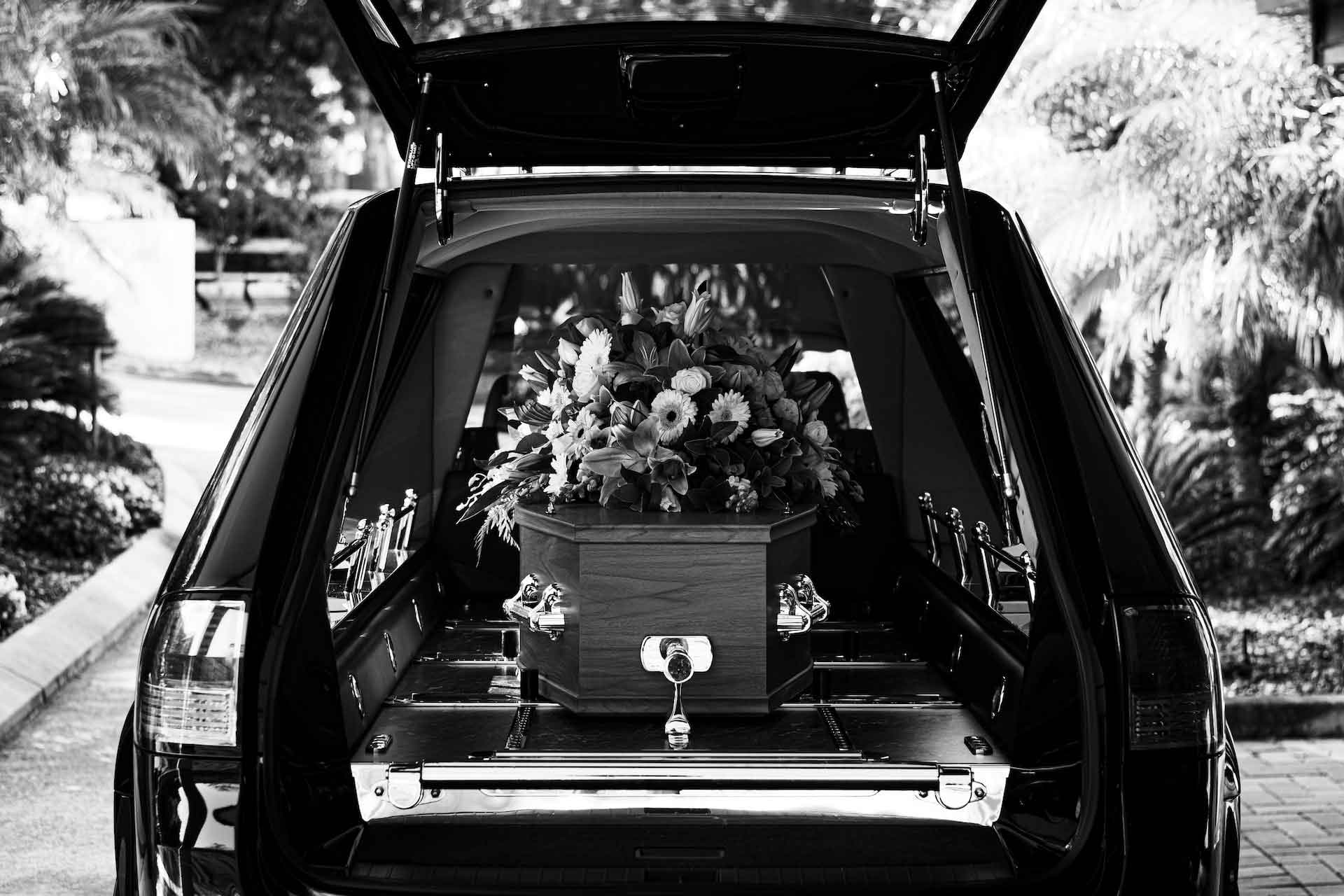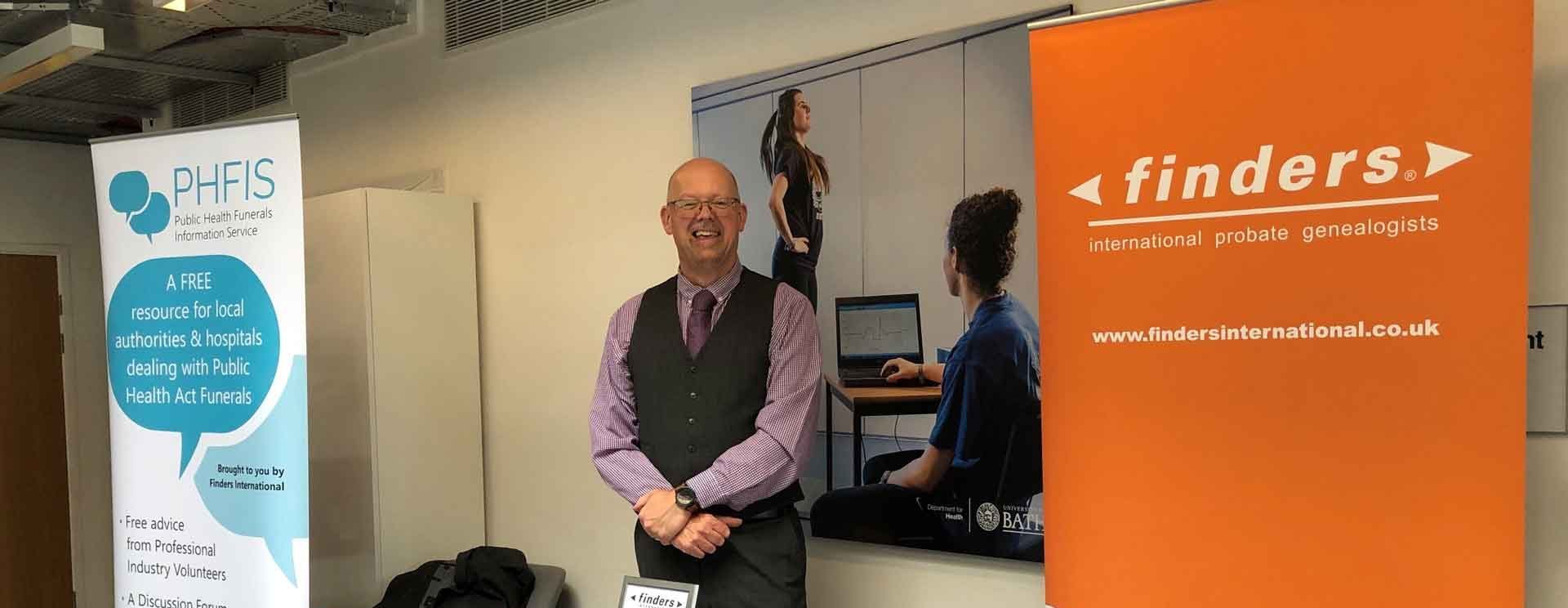Northern Ireland to Review Pauper Funeral Policy
The Mid and East Antrim Borough Council in Northern Ireland is reviewing its policy on public health burials, formerly known as pauper funerals. The review comes after a rise in the costs of burials and demand for the service.
In 2022, the council delivered four public health burials, at a cost of £850 each. The council does not recover the costs of these burials, and the report stated that "no costs have been recovered to date."
The review will look at how to ensure the dignity of the deceased and minimize the cost to the council. The council is also considering whether to change the name of the service from "public health burial" to "indigent burial."
The review is expected to be completed by the end of 2023.
Background
Pauper funerals are a type of funeral that is provided for people who have no family or friends to arrange their funeral. The cost of the funeral is typically paid for by the local authority.
In Northern Ireland, the average cost of a funeral is £3,317. This means that pauper funerals are a relatively inexpensive way to bury or cremate a loved one.
The Review
The review of the Mid and East Antrim Borough Council's pauper funeral policy will consider a number of factors, including:
- The cost of burials
- The demand for the service
- The dignity of the deceased
- The cost to the council
The council is also considering whether to change the name of the service from "public health burial" to "indigent burial."
The Impact of the Review
The outcome of the review could have a significant impact on people who need to use the pauper funeral service. If the costs of the service are increased, it could make it more difficult for people to afford a funeral.
However, if the council is able to find ways to reduce the costs of the service, it could make it more affordable for people who need it.
The review is expected to be completed by the end of 2023. In the meantime, people who need to use the pauper funeral service should contact their local authority for more information.
Scotland's Cost-of-Dying Crisis Reveals Financial Struggles Surrounding Funerals
The rising cost of funerals in Scotland has created a significant burden for numerous families, amplifying the challenges of the existing cost-of-living crisis. The situation is further exacerbated by unethical practices such as unnecessary upselling by some unscrupulous funeral directors, leaving grieving families in dire financial circumstances.
The Soaring Costs
According to a report by SunLife, the average cost of a funeral in the UK has surged by a staggering 115% over the past 18 years. In 2004, a basic funeral would cost approximately £1,835, but by 2020, that figure had skyrocketed to £4,184. While prices have slightly decreased since then, with an average cost of £3,953 in 2023 and £3,848 in Scotland, the overall cost of dying continues to rise due to additional expenses like probate fees and send-off costs, including catering and venue hire, resulting in an alarming total cost of £9,200.
Families are left in a distressing financial predicament, ineligible for government support and compelled to take out expensive loans due to the exorbitant charges imposed by funeral directors. These families, often living payday to payday, face immense stress when presented with funeral bills nearing £3,000, without even receiving essential services such as transportation or an order of service.
Addressing the Crisis:
The Scottish Government's Funeral Support Payment offers limited financial support primarily to those on benefits, often falling short of covering the entire cost. Consequently, families are burdened with significant debts and resort to crowdfunding, borrowing, credit card debt, or selling personal belongings to meet expenses. In this situation, Caledonia Cremation provides an affordable alternative through not-for-profit direct cremation services, offering simplicity and cost-effectiveness without traditional ceremonies. The rising cost of funerals in Scotland compounds the challenges of the cost-of-living crisis and necessitates addressing financial hardships. Enhancing pricing transparency, expanding financial assistance, and promoting awareness of alternatives like direct cremation are crucial steps to alleviate the burden and ensure dignified farewells for families in need.
For more information on Scotland's cost-of-dying crisis, please refer to the original article from The National: Read more
Additionally, individuals seeking guidance and support regarding public health funerals and related matters can find valuable assistance through the Public Health Funeral Information service. Contact us at [email protected].
Finder’s pledge to offset the Carbon Footprint for each webinar in 2023
The research and data collected into the carbon footprint of our daily online activities and uses of streaming services is significantly lower to that of other carbon emitters. We however, do not regard our online uses as totally environmentally friendly and are looking to change this for 2023.
On behalf of Public Health Funerals Information Service (PHFIS), Finders International pledge to offset the estimated carbon emissions for each webinar we host within 2023. To achieve this goal, it required some preparation and research to estimate what the approximate carbon footprint for each webinar is…
According to the Carbon Trust, at an individual level, the carbon footprint of viewing one hour of video-on-demand streaming is approximately 55gCO2e in Europe. This figure considers the energy use of the different components that are involved in the distribution and viewing of video content: data centres and content delivery networks (used for encoding and storage); internet network transmission; home routers; end-user viewing devices (e.g. TVs, laptops, tablets, smartphones); and TV peripherals (e.g. set-top boxes), where relevant.
Based on our 2021 figures, we average a number of 112 attendees per webinar we host, and our average length of webinar is 2 hours. Considering these figures and those supplied but the Carbon Trust, we have estimated…
Each one of our 2023 webinars is estimated to use 0.12 tonnes of CO2
Trees for Life estimates that 1 tree can offset 0.16 tonnes of carbon per year. Because of this, we will be planting 1 tree for each webinar we host in 2023, not only offsetting our carbon emissions for our online event activities, but increasing our contribution by -0.04 tCO2e per webinar.
Rest assured that viewing our webinars will not add to your carbon footprint and help achieve your individual and firms goal towards becoming ‘Net Carbon Zero’. We will be making all tree planting donations to the National Trust in 2023.
Pauper funeral numbers double
A recent report by the New Statesman revealed that the number of so-called pauper’s funerals have doubled since 2019.
Katherine Swindells reports that the cost of living crisis effects are now being felt “beyond life itself” with more people dying without the means to pay for a funeral.
In some of the poorest parts of the UK, people needing a public health funeral has doubled compared to pre-pandemic levels. The public health funeral - sometimes daubed a pauper’s funeral - is paid for by local authorities in cases where people either die without any known next of kin or their family and friends cannot afford the costs.
None of the frills
The funeral is basic – a burial or cremation – with none of the frills.
The New Statesman obtained data from various councils and discovered that in Blackpool, eight people required a public health funeral in October 2022, compared to half that many in October 2019, and between April and October 2022, 26 public health funerals were conducted in total, compared to 12 in the whole of 2019.
Tower Hamlets, another deprived part of the country, had 12 deaths requiring public health funerals between April and September 2022, 50 percent higher than the same time in 2019.
Average cost of dying
The average cost of dying rose to £9,200 in the UK, according to SunLife, 4 percent higher than the previous year and almost 30 percent more than ten years ago.
Burials average £4,800, while cremations are £3,700, although there has been a small decrease in the costs of the most basic funeral, partly due to a ruling by the Competition and Markets Authority where funeral directors were ordered to publicly list their prices.
The main price rises have been in the additional services and the ceremony arrangements. Deborah Smith, speaking on behalf of the National Association of Funeral Directors, told the New Statements that funeral directors were facing the same market forces as everyone else.
Brexit impact
While inflation had affected food and staffing costs, Brexit had an impact on the price of imported coffins and flowers, with floral arrangements increasing in price by 38 percent since 2016, according to SunLife.
Lindsay Mace, co-manager of Down to Earth, a helpline for advice on funeral costs run by the charity Quaker Social Action, told the New Statesmen that even the most basic funeral was still a crushing financial burden for many and that carrying out funeral rituals was “incredibly important” to people, who often went to enormous lengths to do so, getting into debt or borrowing from loan sharks.
While there is government support for people on certain benefits, it barely covers half the cost of a basic funeral and while more and more people try fundraisers for funeral costs, other say that their family and friends can’t afford to donate.
Dan Garrett, chief executive of probate and cremation provider Farewill, told the New Statesman that their research showed that four in ten people who contributed to the funeral of a relative or friend got into debt to do so, and that he thought the situation was going to get a lot worse.
————-
Dave Lockwood, Senior Business Development Manager, Finders International comments; “When talking to Council Officers I have noticed they all speak about a rise in referrals, not just in the cities but across the country. It’s apparent that Councils are seeing an increase in cases and this puts more pressure on already stretched budgets. Something that Local Authorities are keen to avoid in such bleak economic times.”
Local authorities and NHS trusts can contact the Public Health Funerals Information Service for assistance and advice regarding Public Health funerals. We host a series of free training events for bereavement teams or any professionals dealing with the arrangement of a public health act funeral. Through our founders, Finders International, we also offer a free next of kin tracing service.
Click here for more information.
Long delays between deaths and funerals
UK funeral directors are warning of long delays between deaths and funerals, thanks to pressure on the system, an article in the Daily Telegraph set out.
Speaking to reporter Antonia Hoyle, Jackie Sewell related how she had faced a month-long wait to get the death certificate she needed in order for the funeral to go ahead. Her father, Kenneth, died at 93 of dementia in Hampshire.
Without the death certificate, the funeral home could not embalm his body, which as to go into cold storage. Jackie described the process of waiting as unfair on both the living and the person who had passed away.
Average time 22 days
In years gone by, the typical wait for a loved one dying to being buried or cremated was between one and two weeks, but the average time is now 22 days. Deborah Smith of the National Association of Funeral Directors, told the Telegraph that in some parts of he UK, the wait is much longer, with some families being forced to wait five weeks or more.
Excessive deaths are being blamed for the pressure on the system. The Office for National Statistics revealed that hundreds more people are dying every week in England and Wales, with excess deaths caused in part by Covid and illnesses that might have gone unchecked or untreated during the pandemic. The recent heatwave also appears to have caused a spike in death rates.
Another issue is staff shortages, which have led to delays in bodies being released by coroners and deaths being registered by the authorities. The 2020 Coronavirus Act allowed the digital transmission of forms and for people to register a death without needed to attend the office in person to pick up a paper copy of the certificate. When the Act expired in March this year, the old system returned, contributing to the delays.
‘Cruel’ system
Ms Smith said she thought it “cruel” that people were being forced to navigate a paper-based appointment system that had been designed more than a century ago, and that delays i8n holding funerals were very distressing for families.
In England and Wales, unless a coroner is involved, appointments should be made within five days to register a death. A doctor’s certificate that states the cause of death is needed.
When Jackie Sewell’s father died, the care home contacted Co-op funeral services, whose representative picked up the paperwork from her father’s GP. However, when the funeral care representative tried to contact the local register offices, she found that the first available appointment was a month later.
Government cuts and pandemic pressure
A spokesperson from Hampshire County Council told the Telegraph that registration services across the country had “experienced unprecedented demand” in the first three months of 2022, which followed on from two years of pressure caused by the pandemic.
An additional factor was the higher number of people wishing to get married, following on from the lifting of Covid restrictions on weddings, the move back to in-person appointments and high levels of staff sickness because of Covid 19.
There is currently a shortage of burial plots in England too, due to the rising population. A study in 2013 found that a quarter of England’s councils expect the cemeteries they manage to be full by 2023. Cemeteries in Manchester and the Lambeth area of London were mentioned in the article as having particularly high demand for plots.
Government budget cuts and staff shortages were blamed.
The PHFIS is intended as a guide for local authorities and hospitals who deal with public health funerals. If you would like to learn more about the PHFIS or require assistance, you can visit our website here. Alternatively, you can telephone: +44(0) 20 7490 4935 or email: [email protected]
Free conferences for public sector workers
Finders International has a number of conferences coming up aimed at those who work in the public sector – a mix of hybrid and online events for maximum flexibility.
The first event takes place on 8 September at London’s Park Plaza Hotel – the Public Health Funerals Information Service (PHFIS), which takes the form of a hybrid event. The day will welcome delegates from all fields who have an interest in or who provide or who have experienced a funeral provided under statutory by a public authority.
The PHFIS is also proud to announce that it is sponsoring new research carried out by one of the country’s leading experts in the field, Dr Glenys Caswell, an independent social researcher and death studies scholar. The research will explore the perspectives of those who undertake and participate in PHA funerals.
Statutory obligations
David Lockwood, Finders International’s senior business development manager, will also be speaking as he is extensive experience in the complexities of dealing with the statutory obligation of providing funerals under the Public Health Act.
This event is FREE to attend, with places allocated on a first come, first served basis and you can sign up here for both attendance in person and online. It starts at 9.30am and finishes at 3.30pm.
Empty Homes – 2 events London & Manchester
The Community Action on Empty Homes conference takes place on 14 September at the Friends House, Euston Road, London NW1 2BJ – a half day conference from 10.00am to 1.30pm is aimed at everyone who works in housing in the public sector to look at what can be done to ensure more homes are returned to the housing market. Action on Empty Homes will also be launching their Community Action on Empty Homes Toolkit. Again, the event is free, and you can register here to attend.
Finders are also hosting the Empty Homes Classroom Session on 29 September, aimed at people in the north-west of England who work in association with empty properties. Specialist solicitors, Fiona Anthony and Chris Burgess from NP Law (Norfolk County Council) will be delivering training on legal solutions for empty properties.
The training course will cover compulsory purchase orders and enforced sales, explain the circumstances in which these solutions might be used and help attendees understand the processes involved in pursuing these routes.
The event takes place on 29 September 2022 from 9:30am – 3:30pm at the Etc. Venues, 11 Portland St, Manchester, M1 3HU. Register here to attend.
Bereavement e-Conference
And finally, Finders International ran its first Bereavement E-Conference of 2022 on 21 July. The speakers provided talks relevant to those working in and in association with bereavement services, including highlighting signposting resources for the bereaved and reinforcing the need for self-care in these extremely demanding roles.
The next Bereavement E-Conference will take place on 3 November at 10.30am and will again cover a broad range of topics aimed at sharing best practice in bereavement services. Registration for this event will be opening soon with updates available via our website: https://www.findersinternational.co.uk/about/events-training-presentations/. Alternatively, contact us via [email protected] to register early interest or to forward any questions.
Conservative MP warns against ‘watered down’ funeral plan industry regulation
The funeral industry must not prey on fear, Conservative MP Lucy Allan told MPs during a recent parliamentary speech.
The Yorkshire Post published an excerpt of the speech by the MP who represents Telford in Shropshire and who sits on the Health and Social Care Committee. Ms Allan drew attention to predatory practices by certain elements of the funeral plan industry, who often target older people who might be worried about the costs of funerals.
She told parliament that the funeral plan industry has grown extensively in recent years, with some 1.6 million people now holding a funeral plan and some 218,000 taking out a new plan last year and more than £4 billion in funds under management held in those plans.
Good providers out there
The industry remains, however, unregulated. Ms Allan said that the Funeral Planning Authority claimed that it provides oversight, but this was still not regulation. It was worth remembering, she added that there were good providers such as Dignity and Co-op Funeralcare and that they would be regulated by the Financial Conduct Authority by 29 July.
However, other providers have still not applied to be regulated and others have not been accepted for regulation. Concerns had been raised about where that would leave people who held plans with those providers.
She warned that the industry had a record of using high-pressure sales techniques, such as cold calling and having reps sit in people’s homes until they had signed on the dotted line.
‘Extraordinary’ fee arrangements
There were also extraordinary fee arrangements where 25 percent of the plan could be taken as a commission and the use of intermediaries, such as will writers who then sold funeral plans when all someone wanted was a will.
A lack of transparency about how the money was invested was also a concern and those providing plans often played on people’s fears, telling them that a funeral plan was essential when people could simply save the money themselves and make it clear to their relatives what they wanted to happen when they die.
Ms Allan said she was worried that industry lobbyists were seeking to water down the FCA regulation proposals. If the proposals were watered down, it would become easier for companies to be regulated and that might not give consumers the level of protection needed.
The Public Health Funerals Information Service (PHFIS) is a free resource for those dealing with public health act funerals. Click through to our homepage here: www.Publichealthfunerals.org to find out more about our news, resources and events.
Newspaper investigation reveals rise in public health funerals
The Mirror newspaper has revealed massive rises in the number of people requiring a public health funeral in 2020, often referred to as a pauper’s funeral.
A public health funeral is a basic, no-frills service that is paid for by the local authority in cases where someone dies in poverty and their next of kin cannot be found or don’t come forward.
The paper’s Freedom of Information investigation compare data from 362 out of 371 councils in Britain and found there were 5,875 public health funerals last year, with the true total likely to be not far off 6,000 – or one in 100 deaths.
Twenty-six percent increase
The figures mark a 26 percent increase on 2019. The increase is thought to be due to several factors – rising funeral costs, the increase in the numbers of people living and dying alone, and poverty.
Among those who ended up having a public health funeral in 2020 were “Baby Ruja”, who died on the same day she was born in Doncaster and whose body was cremated four months later. The oldest people were 101-year-old Frances Oldridge from Southampton and 103-year-old Maximo Andreo in North London.
Christina Martin who works for Wealden Council’s environmental health department in East Sussex organised and attended 11 public health funerals last year, up from four the previous year. She does not think the pandemic is responsible for most of the increase in numbers.
Funding a big issue
While she attended a couple of Covid funerals, she told The Mirror, the overall contributor seemed to be the ageing population and people not having a traditional family set up. Funding was another big issue, as basic funerals can cost as much as £4,000.
The Department for Work and Pensions has means-tested support for some cases, such as the death of a child or if a family claims certain benefits.
Christina explained that public health funeral were needed for bodies that hadn’t been dealt with. Her job was to go in after the police and ambulance services have left and do a more thorough search, looking for any documentation in houses that might help her find relatives. She also looks for valuables so that they can be added to a person’s estate and used to offset the funeral costs.
Council responsibility
Wealden Council was able to reclaim its costs in full from the deceased’s estate in seven out of last year’s 11 cases. Public health funerals are the responsibility of the council where the person dies.
Danny Curran, Finders International’s CEO and founder, said: “Thanks to our experience searching for next of kin when people die intestate, we can find the relatives of almost anyone very quickly.
“Local authorities and NHS trusts can apply to our funeral fund for a subsidy payment that can go towards the cost of public health funerals. These will be cases where there genuinely are no known next of kin (rather than next of kin simply refusing to pay) and Finders will carry out research to confirm this. For more information or to apply for a subsidy, simply contact us at [email protected] or call Freephone 0800 085 8796.”
The Public Health Funerals Information Service (PHFIS) is a free resource for those dealing with Public Health Act Funerals. Click through to our homepage here: www.Publichealthfunerals.org to find out more about our news, resources and events.
Investigation conducted into Local’s Authorities approach to ‘Pauper’s Funerals’
The Guardian has reported that Councils in England and Wales are waiving their responsibility to provide Public Health act funerals, more commonly known as “pauper’s funerals.”
Quaker Social Action, an anti- poverty charity, stated that families of a low income, are often being turned away because they are not able to afford to pay for the burial or cremation of their loved ones.
Senior Business Manager at Finders International and spokesperson for the Public Health Funeral Information Service, David Lockwood, comments: “The article highlights the need for a unified approach by local authorities on this sensitive matter, at a time when the most vulnerable in our society need help navigating the perfect storm of the pandemic and cuts to council funding which have hit services up and down the country.
The non-statutory guidance issued by the ministry for housing, communities and local government was a good start, but the legislation needs to be updated and reflect the times in which we live.
Funeral poverty is a real issue for so many, the amount of people that have approached our advice line has more than doubled since the pandemic hit, funerals are too expensive, and a solution has to be found. Perhaps we need to revisit the idea of the DWP issuing a standard payment when someone passes away to cover the cost of a simple cremation? This would assist so many and ensure that when a Council has to make arrangements local budgets aren’t adversely affected.”
Read the full article here: https://www.theguardian.com/society/2021/jul/06/uk-councils-failing-to-provide-paupers-funerals-investigation-reveals
The Public Health Funerals Information Service (PHFIS) is a free resource for those dealing with public health act funerals. Click through to our homepage here: www.Publichealthfunerals.org to find out more about our news, resources and events.
The year of COVID-19 – and resilience at its finest
2020 has been an incredibly challenging year for us all and, as it can be assumed that no one has been left untouched by the virus in some way or another, it would be understandable if you were to describe it negatively.
However, the single word I would use to describe this year would be ‘resilient’.
The definition, according to the Oxford English Dictionary is ‘[they] showed great courage and resilience in fighting back from a losing position to win the game’.
While in no way do I imply 2020 has been a game, it is how you respond in the face of adversity. For local authorities, a pandemic will have been prepared for with emergency plans being put into place after years of endless preparation. Staff have had to adapt overnight from working in offices to working from home. The challenges to IT teams have been immense and the strain on already overstretched resources may have even led to sleepless nights for staff struggling to ensure services continue whilst still keeping themselves and colleagues safe.
Similarly, Finders International have had to change with the majority of staff working remotely. While it has been easier for Finders to diverge operations given the smaller scale of staff, it was no mean feat to undertake. Physical resources have been closed, which presented a few issues, however online resources remained available and Finders were able to continue tracing next of kin as usual.
Personally, 2020 has meant I have seen a change in the way I work with face-to-face meetings being postponed. Over the past two and a half years prior to the lockdown, I have had the privilege of meeting many of you in person whether that be in your offices or at one of the many events we have successfully run across the country.
However, in late February it was beginning to look like things were needing to change and quickly as the realisation dawned on many that this crippling virus was not going to go away. Our events were postponed, and we moved our conferences online. Zoom became the new normal with our speakers recording their presentations for our events. Staff have had to adapt, learn and develop new skills to ensure that we provide a quality offering online. Websites have been amended to better suit changing needs, requiring the whole team to pull together.
While we usually have one PHA Funeral event a year, we provided two this year and we have further provided separate events for deputyship teams, private client solicitors, hospitals and coroners, which we are proud to have successfully organised receiving excellent feedback. Furthermore, for each feedback form completed, we donated money to charities working hard to support those that need it the most during this turbulent year.
Whilst we may not know when, or if, things will return to normal, we have still been able to support teams, provide quality material and engage via video conferencing. In the face of adversity, I think we have all shown great resilience and we are looking to further excel our drive to supporting the public sector into 2021 – a year we are all looking upon optimistically.
Have a peaceful and relaxing festive season, but of overwhelmingly more importance, keep well and keep safe.
Hope to see you in 2021.
David Lockwood – Finders International
The PHFIS is intended as a guide for local authorities and hospitals who deal with public health funerals. If you would like to learn more about the PHFIS, watch our past events or require assistance, you can further explore our website here. Alternatively, you can telephone: +44(0) 20 7490 4935 or email: [email protected].











